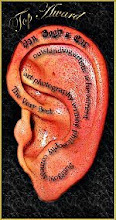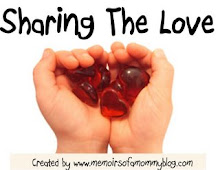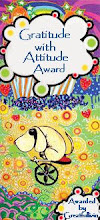(plus 3 more thoughts for your consideration)
I hope you'll take time to view the link yourself and read on ... perhaps passing some of these ideas on to family & friends too. Together we can do more than any of us can do alone ... and it's definitely time for change when it comes to educating our kids for a future we have no way to envision.
First some 'Quotes to Consider'
1. "It is, in fact, nothing short of a miracle that the modern methods of instruction have not entirely strangled the holy curiosity of inquiry." Albert Einstein
2. "The illiterate of the 21st century will not be those who cannot read and write, but those who cannot learn, unlearn, and relearn." Alvin Toffler
3. "Thank goodness I was never sent to school; it would have rubbed off some of the originality." Beatrix Potter
Hopefully we'll figure out how to 'rethink our educational systems' as we refine our understanding of 'intelligence' as being 'diverse, dynamic, and distinct' as Sir Ken Robinson suggests. In the meantime, according to Art Costa, here are specific signs of improved thinking you can observe in yourselves and others ... especially the children in your life ... as schools continue to 'develop the left side' of their brains:
4. Perseverance - "Students often give up in despair when the answer to a problem is not evident. They are unable to analyze problems or develop systems, structures, or strategies to solve them. Thinking students grow in their problem-solving strategies. If one strategy doesn't work, they know how to back up and try another. They realize that the first theory or idea must be rejected and another employed. They use systematic methods to analyze problems and know how to begin, what steps to perform, and what data to generate or collect."
5. Decreased impulsiveness - "Students often give the first answer that comes to mind. ... As students become less impulsive, we observe a decrease in the number of erasures on their papers. They gather information and make sure they understand directions before beginning tasks, take time to reflect on answers before giving them, listen to alternative points of view, and plan problem-solving strategies."
6. Flexible thinking - "Some students have difficulty considering alternate points of view or dealing with more than one classification system simultaneously. Their way ... seems to be the only way. They are more interested in knowing whether their answers are correct than being challenged by the process of finding the answer, and are unable to sustain the process. As students become more flexible they can consider, express, or paraphrase the viewpoints or rationales of others. They can state several ways of solving the same problem and evaluate the merits and consequences of alternate course of action."
7. Metacognition - "Some people are unaware of their own thinking processes. They are unable to describe the steps or strategies they use during problem solving, cannot transform into words the visual images held in their minds, and seldom evaluate the quality of their own thinking skills. We can determine that students are becoming more aware of their own thinking as they are able to describe what goes on in their heads when they think ... list the steps and tell where they are in the sequence of a problem solving strategy ... trace the pathways and blind alleys they took on the road to the solution."
8. Careful review - "Students are often careless when turning in their completed work ... less inclined to reflect on the accuracy ... contemplate their precision, or take pride in their accomplishments. Getting the assignment over with quickly is more important ... than craftsmanship. We can recognize growth in students' desires for accuracy as they take time to check over their tests and papers and become more conscientious about precision, clarity, and perfection."
9. Problem posing - "One of the distinguishing characteristics between humans and other life forms is our ability to find problems. ... We want to see a shift from teachers asking questions and posing problems to students asking questions and finding problems themselves. ... asking questions like these:
- "What evidence do you have?" or "How do you know that's true?"
- "What do you think would happen if ...?" or "If that is true, then ... ?"
- "What would happen if we put the saltwater fish in the freshwater aquarium?" or "What are some alternative solutions to international conflicts other than wars?"
11. Transference beyond the learning situation - "The ultimate goal of teaching thinking skills is for students to apply school-learned knowledge in real-life situations. When parents and other teachers report how they have observed students thinking at home and in other classes, we know students are transferring."
12. Precise language - "Some student's language is confused, vague, or imprecise ... using non-specific words such as 'weird, nice, okay ... junk or things' with sentences punctuated with 'ya know, er, and um'. As student's language becomes more precise they use more descriptive words to distinguish attributes ... correct names ... and when universal labels are unavailable, they use analogies such as 'crescent-shaped or like a bowtie' ... they speak in complete sentences, voluntarily provide supportive evidence for their ideas, elaborate, clarify, and operationally define their terminology. Their speech becomes more concise, descriptive, and coherent."
13. Enjoyment of problem solving - "Some children and adults avoid problems ... saying things like 'Thinking games turn me off' or 'I was never good at brain-teasers' ... and perceive thinking as hard work. ... We want to see students move toward not only an 'I can' attitude, but also an 'I enjoy' feeling. They will display increased independence and not need as much help and intervention from teachers. Statements such as 'Don't tell me the answer, I can figure it out myself' indicate growing autonomy."
Links to other Thursday Thirteens!
The purpose of the meme is to get to know everyone who participates a little bit better every Thursday. Visiting fellow Thirteeners is encouraged! If you participate, leave the link to your Thirteen in others comments. It’s easy, and fun! Trackbacks, pings, comment links accepted!
View More Thursday Thirteen Participants
Get the Thursday Thirteeen code here!
Thursday Thirteen Blogroll to the bottom of my sidebar.
(I've used this one before ... but methinks it bears repeating)
"If we value independence, if we are disturbed by the growing conformity of knowledge of values, of attitude, which our present system induces, then we may wish to set up conditions of learning which make for uniqueness, for self-direction, and for self-initiated learning." Carl Rogers

























![[premio-dardos_thumb1--aline.jpg]](https://blogger.googleusercontent.com/img/b/R29vZ2xl/AVvXsEgjW81dYN-lRYB34FAZKsEcTZK6syODVDvMZUqP-xRVHuT4SElhjIGWtbKV4pk2zDDKHE0rPq07a5KKCKT79xcGu6WvPTyzhAkO1CuQ5_9nvLhA4zkf_nJgw7MKeZPD_Mc8sjhPPT4dXqg/s1600/premio-dardos_thumb1--aline.jpg)






























































































22 comments:
#10 and 11 are big ones up here for our schools. We use it a lot in Reading Responses and it's the most interesting for me in the teacher role as I love to share my experiences with the kids too about what we've read. Everybody can attach more meaning to what they've read and they love hearing about the teacher's life!
I love these. I particularly found #9 about problem posing interesting. I hope my daughter will learn to enjoy problem solving and not shy away from it. I really enjoyed your T-13 :)
Gee, storyteller, these are great ideas and suggestions for kids and grown-ups alike! I have a "What if" scenario on my blog. Come check it out...:D
You know.... I never went to school! I was sick a lot in elementary school and junior high, then just didn't go in high school. I couldn't get the point. I studied and turned in homework but class? Please. I still graduated from UC Berkeley in Biochemistry. What's that tell you? ;)
Thanks for always encouraging the optimistic growth - no matter how improbably the recipient!
Happy TT - and hurray for rebellion against TT themes!
Gosh, it's been so long, but I do like this post. Very positive. Well done. I'm sorry I haven't visited more. I have been terribly busy, but very much enjoying the time away. Hope you are well. I'll see you again soon. *Lots of Lov'n*
Yeah, Claudia's post was great, wasn't it?
I got the results of my son's standardized tests today. I'm trying to figure out what they mean in the greater scheme of things and why they aren't a better measure of this list and Claudia's.
Oh, yeah. No Child Left Behind... they mean nothing.
What a wonderful and insightful T13 this week.
Generating today’s post brings me back (and wore me out) … reminding me I’m glad I’m not trying to teach kids who are ‘texting their friends’ in class each day. Who needs to whisper or pass notes any more and what craziness permits such behavior anyway? How does one administer a ‘test’ and expect anything like ‘valid’ results??? Perhaps this will help us abandon the fool-hearty reliance on ‘Standardized Tests’ finally and return to the business of ‘educating’ (as in opening the minds of) rather than ‘schooling’ (placing ‘limits’ and/or boundaries on) our children?
Mother of Invention – I’m heartened to know there are still teachers who open rather than close kids’ minds!
Sandy – These early years are so important with babies and toddlers … talking and listening to our kids as they acquire (and begin to communicate with) language … forming positive attitudes toward learning and enjoyment of mastering new skills. I’m glad you enjoyed my T-13 and hope it’s helpful to others.
the teach – Thanks … and I’ll be by in a while to check your blog ;--)
Claudia – I’m a product of schools (wasn’t allowed to miss a day from K-12th grade) … and fortunately encountered some ‘adequate’ teachers (and a few exceptional ones) along the way. We’re both living proof that there are many ways to educate kids.
Chuck – I’m delighted to see you in the Blogosphere again … even if only for a day.
Susan – I didn’t see TODAY’s T-13 at Claudia’s until after I’d published this one. Yesterday’s link captured and held my attention!
Sassy Mama Bear – Why thank you! This is what I did for a living … once upon a time … before I retired from teaching and moved on ;--)
I’m delighted to find your supportive comments and enthusiastic responses as I sit down to ‘check in’ while eating some lunch after visiting with my sister on the cell phone for a couple of hours (while she's waiting out a rainstorm in Ohio today) and taking Molly for a walk afterwards. Hopefully I’ll have time later today to visit … but if I don’t get to your blog today, I’ll get there as soon as time permits … certainly over the weekend. I hope you’re all having a wonderful week.
Hugs and blessings,
Very Interesting! Happy TT!
What a great list. Children who learn to think and formulate questions and responses do best in our world. I think my children have learned this, but my daughter has learned it better than my son.
Happy TT!
Loved your list. It really made me think:) Happy TT and thanks for stopping by.
I enjoyed the Sir Ken Robinson talk very much.
Thank you for this thought-provoking post, Storyteller. :)
Monday through Sunday
I’m happy you found it so ;--)
Denise – Girls sometimes (although not always) do learn such things earlier than boys … often mastering them differently. Remembering that ‘intelligence’ is ‘diverse, dynamic, and distinct’ and valuing all individual ‘gifts & talents’ in children is essential for parents & teachers alike.
Lori – You’re quite welcome! I’m delighted to return the favor … for your T-13s always make me think.
Joyce – I suspected you would and appreciate your feedback.
Thanks to each of you for visiting and sharing your responses to my T-13 today. Hope you have a fantastic Friday!
Hugs and blessings,
I thought these sounded familiar when I was reading them, then I looked up Art Costa on Amazon and realized why--the school my fiancee teaches at was looking at his "Habits of Mind" approach and she and I were talking about it. I hope to look into it further, perhaps this summer, though with moving and a wedding, it may be difficult. Still, it seems like it would be time well-spent.
Well, it loaded for me....but so slowly...now I forgot just what I had in mind to say.
But I do think your #10 is so important not only in schools but in LIFE.
Sherck – After watching the video clip of Sir Ken Robinson’s talk in Monterey, I decided to share these 10 ‘habits of mind’ taken from my signed copy of Art’s article in the book he edited: DEVELOPING MINDS. I figured there were moms and teachers who read my blog that might find them of interest. In preparing the post, I checked Art’s website and provided a link there. I enjoyed seeing what he’s doing these days myself. It seems as if you’ve got lots going on right now … but, in my humble opinion, the ideas ARE worth further study when time permits. I suspect you'll discuss them further with Lauren eventually and incorporate what makes sense into your own teaching over time.
Hootin’ Anni – I appreciate you hanging in there and making the effort and I hope whatever the problem is with ‘Blogger’ gets resolved soon. As for #10 … I’m always amazed at kids at cash registers who can’t figure out the simplest thing regarding ‘change’ unless the ‘computer’ tells them what to do. It’s just sad!
Thanks to both of you for visiting and have a wonderful weekend!
Hugs and blessings,
I'm reading through the list and thinking, "yes, yes, YES," but here's my question: how do we do this? Are there sources out there that will help me instill this in my kid? What do you (and any of your readers) recommend?
I don't think that homeschooling or private schooling is going to be an option--so how can I practically supplement what my son is getting in the public school system?
Karen - I apologize for the mini-post type comment, but you did ask ... and the teacher in me cannot help but respond ;--)
The first thing to do is R E L A X and trust yourself … for your ‘intuitive’ guidance will lead the way to whatever ‘resources’ you and Nathan need. Bear in mind that nothing (or no one) will ‘instill’ anything in anyone. In my humble opinion … all kids are ‘perfect’ as they arrive on the scene. They learn through observation and experience … model themselves after what they see, hear, and encounter … adopt ‘whatever works for them’ and ignore what doesn’t.
That said … they’re also perfect ‘teachers’ for the rest of us … mirroring (as in reflecting back to us) what they perceive ... providing those around them with ‘feedback’ to modify ourselves in healthy ways (if we choose to look objectively) ... and 'not so healthy' ways when we don't. It’s my bias that some of the ‘technological advances’ that supposedly make life easier … have generated ‘unintended consequences’ in our children … many of whom are now teenagers and/or ‘young adults’ raising families of their own. In addition, societal changes in family structures, food options and habits, job opportunities, mobility, isolation from extended family, etc. have generated 'effects' in ourselves and in children. Everything affects everyone ... often in 'unlooked for' ways and it's time we all paid closer attention to such things.
Someone once said something like ‘foolishness’ can be defined as ‘doing the same thing repeatedly’ while ‘expecting different results’ … and it’s MY belief (based on years of personal experience and observations of my own) we generate change in others best when we modify ourselves continuously rather than trying to ‘fix’ anyone (including ourselves). Regret, guilt, blame, shame and/or worry help no one … ever!
THE FOUR AGREEMENTS by Don Miguel Ruiz helped me a great deal … (four simple but not always easy to apply concepts) … adopting these allowed me to give up faulty beliefs and shift my focus just enough to begin. I continue to ‘play’ with (having finally decided not to 'work' at anything in particular any longer) change in myself all the time … convinced each of us has purpose (as in a specific role to play) here on earth.
I wish you the best Mother’s Day ever!
Hugs and blessings,
Love this. Thanks! Makes me miss teaching.
Yertle – Welcome back! Hope you had a wonderful trip. Yes … when I watched the video clip with Sir Ken Robinson and dredged up this info from my past work with Art Costa to share here, even I missed ‘teaching’ briefly … but I let those feelings pass fairly fast because I love being retired!
Hugs and blessings,
Storyteller,
These are excellent ideas for all students old and young alike. A great deal to think about and implement. Thank you!
hugs,
Tina
Tina – I’m happy to share. I used to teach workshops to teachers on the topic of teaching for ‘critical’ and ‘creative’ thinking. I enjoyed ‘dredging’ up my memories (and a few notes) to put this post together. I’m also relieved I’m ‘happily’ retired ;--)
Hugs and blessings,
Post a Comment